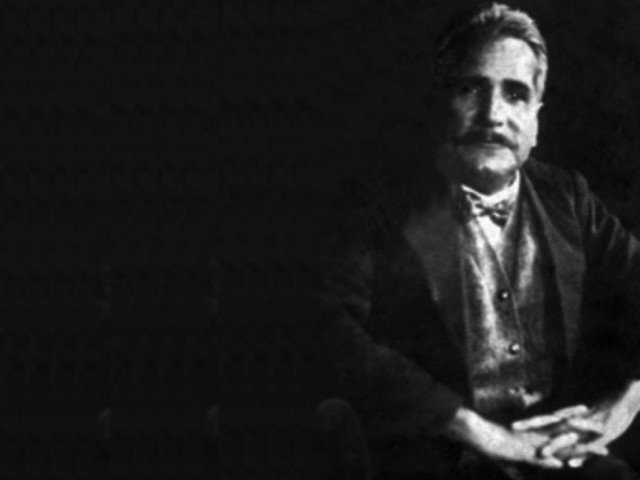
Similarly, many of us live in an illusioned reality that is created by others; and herein lies the tragedy. We live in an illusion largely comprised of prevalent myths which surround us, which (mis)guide us and which regulate and control our persona, both social and personal. However, the troubling question is: how have these myths blurred our vision towards the most naked truth? Our rational self, being largely constituted by these myths, fails to answer this. Philosophy with all its rationality is itself an obscurantist truth, for a philosopher is connotatively taken to be the one who mystifies what he has undertaken to demystify; and he may do this intentionally as well. Michael Focault, a prominent French philosopher, beckons to the same fact in the French context when he says that one has to keep at least ten per cent of things incomprehensible in France otherwise people won’t consider one a deep thinker. Theories, therefore, being obscurantist in nature, are an unreliable parameter to approach what can be called the ‘naked truth’.
Interestingly, obscurantism has always been theoretically safeguarded. More interestingly, whichever theory started with deconstructing it ended up with a more complicated reconstruction. Contemporarily, obscurantism has garnered most of its strength from the prevalent philosophies such as structuralism, poststructuralist, and postmodernism. The strength is inherently linguistics. Derrida, a poststructuralist known for his deconstructionism, who limits the truth to the concept underlined by language itself and, hence, denies any meaning beyond it, tends to be obscurantist by intermingling the natural ‘origin’ of meaning and its ‘institution’ in writing and, so, refutes any possibility of the existence of any transcendental origin beyond institution. Encapsulating this notion in the phrase ‘There is nothing outside of the text’, he seeks refuge in relativism which typifies the postmodernist paradigm. This is how the poststructuralist and postmodernist thought fails to address the issue which it undertook to address. It fails when it compromises on the same truth which it has always denied to accept.
Coming to Iqbal who is allegedly an obscurantist, his critics criticise that he deliberately mystifies his message to fulfil his poetic and philosophical demands which might be natural to his temperament. But, a true demystification of both, his thoughts and language, will show him a true deconstructionist. He deconstructs on a universal spectrum, be it a philosophical, theological, socio-political or socio-economic.
Linguistically, he challenges the logocentrism of Plato as reflected in Plato’s notion of forms and its deconstruction by Derrida as well. To Iqbal, language is neither the truth per se, nor can it be a reliable medium to reach the truth. However, the intuitive feeling which he believes as the only real reflection of one’s profoundest self does need its expression and this expression is possible generally through language. Here, he believes in a transcendent language, the language which seeks to express, rather than an immanent language, the language that serves aesthetic demands, as he says:
Neither I know the art of playing with words, nor do I have any language
Melody must pierce into heart, the language be Persian or Chinese
So, whereas structuralists and poststructuralists suffer from the dilemma and are ultimately led to accept the same reality which they have consistently been denying, Iqbal foresees these repercussions decades before and, so, over and over again beckons to these linguistic barriers, warning that linguistic parameter is merely one of the parameters to see reality through.
Secondly, poststructuralist and postmodernist ideals fail when it compromises accepting the truth as temporally and spatially relative, their endeavour to expose and fight again the status quo also fails. Iqbal neither rests on the relativist truth nor does he accept the obscurantist one. This is because in the socio-political and the socio-economic spectrum, he has to explore the truth in the real sense, and not a truth which depends on any philosophical standard. The following verses, for example, reflect his deconstruction of the western discourse that has formed the horizons in such a way that they sustain the socio-political hegemony of the West:
That is no dawn at the Western skyline — it is a bloodbath, that ruddy glow!
Await to-morrow; our yesterday and to-day are legends of long ago
He continues to demystify the feigned Western myths:
To them the trade-wind belongs, the sky-way, to them the ocean, to them the ship —
It shall not serve them to calm the whirlpool by which their fate holds them in its grip!
So, his intuitive sense is reluctant to collaborate with any philosophical paradigm because it doubts the latter’s authenticity:
By the mighty force of Love I am turned to Boundless Deep:
I fear that my self-regard, Me, for aye, on shore may keep!
That is why he points out that the Western discourse has beguiled not only the non-West but the West itself.
From Nature’s forces their reckless science has stripped the garments away, until
At last its own nesting-place is scorched by the restless lightning it cannot still:
What distinguishes Iqbal as a deconstructionist from other deconstructionists like Derrida is that Iqbal deconstructs to synthesise. Whereas poststructuralists and postmodernists fail to piece together their philosophical fragmentations, Iqbal reconstructs after deconstructing in order to see the reality coherently. He also forewarns the philosophers, who came to live decades after him, about the misleading directions they had to embark upon.
O sight! That was the One you showed us as a thousand
If this is your state what will be your credibility?
Published in The Express Tribune, November 9th, 2019.
Like Opinion & Editorial on Facebook, follow @ETOpEd on Twitter to receive all updates on all our daily pieces.
1718870162-0/BeFunky-collage-(60)1718870162-0-405x300.webp)
1730504285-0/Martha-(1)1730504285-0-165x106.webp)











COMMENTS (1)
Comments are moderated and generally will be posted if they are on-topic and not abusive.
For more information, please see our Comments FAQ